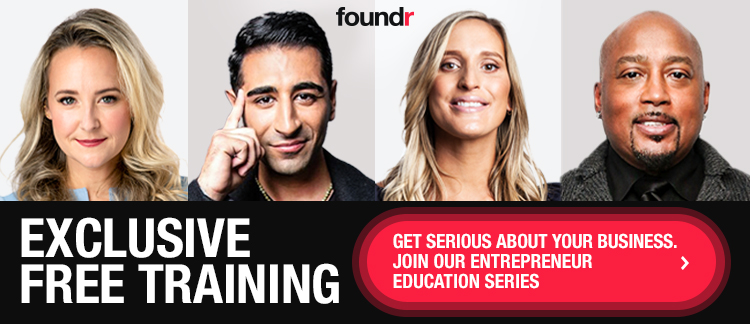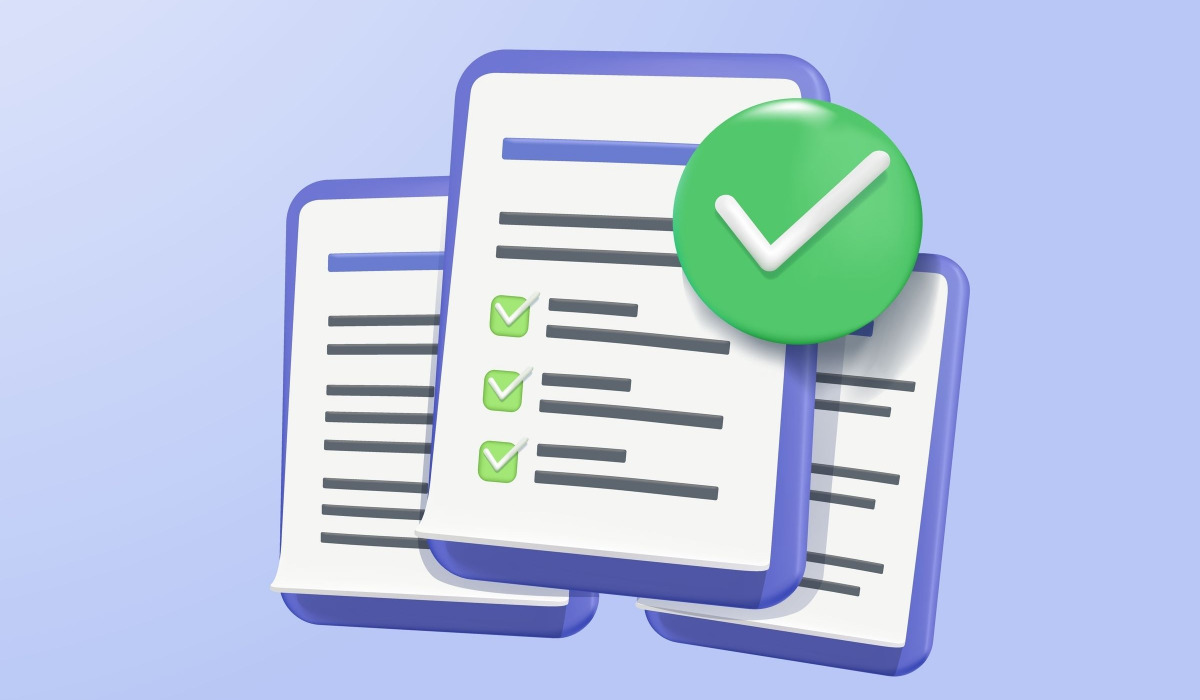What does every successful entrepreneur, athlete, teacher, or artist in the world have in common? They can point out at least one mentor who made a difference in their lives. No matter what kind of industry you’re in, what kind of career you’re building, or what kind of person you are—having a great mentor is a key factor in becoming successful.
But while most young, ambitious entrepreneurs understand how important this concept is to their growth, they often struggle to find a business mentor. Our digital world has brought us closer than ever in many ways, but has also made the connection process less straightforward than it was for past generations.
This step-by-step guide combines age-old wisdom with modern techniques to outline your ideal path to securing a business mentor. Not just any mentor, mind you, but one who understands your business and has the insights to make it better than ever.
What Is a Business Mentor?
In the simplest terms, a mentor is anyone who possesses more experience and knowledge than you in a given industry. They have skills you want to master in order to thrive. Although mentorships are sometimes viewed as a one-way street where a veteran entrepreneur gives out advice to a younger one just for the sake of it, this is rarely the case.
The best mentorships are symbiotic, with 2 people equally benefiting each other. Maybe the mentor can invest in the mentoree’s startup, as happened with Foundr community member and entreprenuer Daniel Álvarez Yunes. Or it could be that the mentor wants to make an impact in the world through the actions of their mentoree.
Your mentoring relationships should share this same element of abundance. Both parties learn from each other and ensure that the rising tide lifts all boats in the relationship.
Why Should I Find a Mentor?
Entrepreneurs need mentors more than other professionals, as it’s nearly impossible to formally teach entrepreneurship. There are just too many variables and factors that can change from industry to industry, and entrepreneur to entrepreneur.
Here are 6 of the primary ways a mentor can help novice entrepreneurs:
- Provide new information to bypass the mentee’s lack of experience
- Offering a listening ear for complaints and concerns
- Provide a different perspective for problem-solving and processes
- Improving the mentee’s soft skills
- Connection with a larger and more robust network
- Encouragement to take risks
As you can see, it would be difficult to sit in a classroom and passively absorb all of this. The best way to learn more about entrepreneurship is to go out there and do it yourself, but the issue with learning by doing is that it’s not the most streamlined method to learn something. The journey from novice to expert is one that requires a lot of mistakes and pitfalls along the way, something that discourages young entrepreneurs.
This is why the guidance of a trusted mentor is so important. They’ve already earned their degree from the school of hard knocks and can give you the type of advice they wished they’d had when they first started. They provide individualized support that formal education can’t. Indeed, empathy is the secret weapon that powers the best mentorships.
What to Look for in a Mentor
Every mentor is different, so your goal shouldn’t be simply to find a mentor. That’s like setting the goal that you will buy a car this week. What does that even mean? Do you want to buy a small, affordable vehicle with a reliable engine, such as a Honda Civic? Or is your objective to purchase a high-performance vehicle, such as an Audi R8, with a much higher price tag?
Your unique needs and goals will drive that decision. If you just need a reliable car to get you to and from the office, perhaps the Civic is your ideal choice. But if you are looking to make a substantial investment in a car that will deliver advanced features and also make a statement about your lifestyle, the Audi is the better fit.
Likewise, you need to find the mentor who is most compatible with you and your startup. One who has the experience you lack, the skills you require, and the vision you share. Someone who will challenge you when necessary and be supportive when you need it most. They might be from the same industry, but it’s never a prerequisite.
Most importantly, your mentor needs to be a good teacher who communicates in a way that’s compatible with you. A wise business owner could possess all the knowledge in the world, but it would be of little use if they weren’t able to share it in a way that allowed a mentee to internalize it.
How to Find a Mentor Who Aligns with Your Needs
Your first objective in this process is to identify exactly what it is you’re looking for in a mentor. Consider these questions as you begin to compile a profile:
- What skills do I need?
- What processes do I need to learn?
- What industries are most relevant to my mentorship?
- What type of personality will be most effective for my mentor?
- What communication style will be most effective?
- What do I have to offer in this mentorship relationship?
After writing down the characteristics and qualifications you’re seeking in your mentor, you’ll have a better idea of what exactly it is you’re looking for. Going back to the earlier example, it’s much easier to shop for a Honda Civic than it is to shop for a “car.” The first search would involve a limited number of cars and it would be easy to find comparables between them, while the second search would open a Pandora’s Box of options that could easily overwhelm you.
Armed with your mentor profile, you’re ready to begin looking for compatible individuals. Here are 5 of the best ways to connect with mentors:
Mentorship Programs
Recently there has been a huge surge of formal mentorship programs and businesses designed to connect young entrepreneurs with experienced mentors. For many early-stage entrepreneurs, this is the most direct and straightforward way of getting in touch with a mentor.
There are essentially 2 different types of mentorship programs that you can join. First are formal programs such as Coach.me and The Muse, designed to match entrepreneurs with personal mentors for a fee. The other option is an incubator like Y Combinator or AngelsCube, where participants are allowed to focus on their own startups full-time, receiving mentorship and coaching in return for equity in the startup. On the local level, you’ll often find incubators and small business programs geared with resources specific to your area.
Meetup
This platform allows you to easily search for any local entrepreneurship groups and events that are happening near you and immediately get in contact with other entrepreneurs. There are thousands of digital and live events occurring each day via Meetup, making it a powerful way to establish the right connections.
Get strategic with these events by looking at the speakers list. Meetup groups often bring in high-profile entrepreneurs to speak, so check it out to see if there’s anyone there who you’d want as a mentor.
While this form of networking can be as easy as buying a ticket and talking to the speaker after the event, you can establish your own ambitious brand of entrepreneurship from the start by volunteering to help out at the event so you get more of a chance to talk to them one on one.
LinkedIn is another platform that has been engineered specifically for working professionals. Once your profile is up and running, you’re able to immediately start networking with potential mentors.
LinkedIn is powerful because it harnesses the power of the referral. You’re able to find out whether or not you and your prospective mentor share any mutual connections and whether or not you can get introduced.
It’s in our nature to trust a referral from a friend over anything else. Being able to have a mutual friend introduce you is going to get you noticed far more than other methods of outreach.
By using the “Advanced” feature on LinkedIn, you’re even able to narrow down your list of potential mentors by filtering them through industry, location, school, and more. You can then generate a list of potential mentors that you can get in contact with. Even if they’re a second or third connection it just means you get an opportunity to expand your professional network even further.
Your Personal Network
In trying to find a mentor, we often get so focused on landing a high-profile mentor that we forget to take advantage of the potential mentors who are already in our lives. Sure, it could be incredible to connect with a high-profile entrepreneur like Tim Ferriss or Richard Branson. But would those individuals even be compatible with your own style and priorities? Probably not.
Don’t overlook the quality mentorship you can receive from someone who may have a lower profile, but is super effective and knowledgeable. These potential mentors who already know you and share common ground can be most impactful because their guidance enables you to hit the ground running.
One aspect of this source of mentors is to make sure your chosen individual will be direct in their feedback. There are so many benefits to working with someone from your network who possesses rich experience or a really sharp outlook on your field, but those benefits can be negated if they aren’t willing to give your constructive criticism.
Cold Emailing
When it comes to how to find a business mentor, this is one of the least effective approaches. But if you have struck out in your other methods or have identified a potential mentor who you won’t be able to contact any other way, consider an email pitch.
The truth is the most high-profile entrepreneurs get hundreds of emails a day from people asking them for advice or to be a mentor. Amidst this deluge of requests it’s hard to get noticed… and to not annoy if you indeed get noticed.
If you decide to use the cold email method, start by seeking out the best contact information using a tool like Hunter or Yesware. You can also use Google to seek out press releases or other company documents that might display your mentor candidate’s information.
Before reaching out to them, make sure you have something of value to offer them. An easy example of this is to give them a mention in a blog post or a Medium article. Once it’s published and has a chance to drive some traffic, send an email or tweet letting them know that you’ve highlighted their work.
By highlighting the specific aspects of their work you respect, you’ve laid the groundwork for a relationship. There’s no guarantee that they’ll respond warmly to your request for mentorship, but at least you’ve shown that you’re a capable entrepreneur who can provide value.
Targeted Mentorship Is Best
Whether you meet your future mentor at an industry event or reach out with a cold email, it’s best to seek specific advice at the onset rather than make a blanket request for mentorship. For example, you might reach out to an entrepreneur known for her marketing prowess in order to ask for advice on your upcoming ad campaign.
Once you’ve successfully received guidance, you can thank the individual for taking the time to share their wisdom. Share how you implemented their advice and then ask if it would be okay for you to contact them in the future if the need arises. This measured approach helps the mentor not feel overwhelmed, making it more likely they’ll say yes.
Don’t be afraid to occasionally update them about your progress and let them know how well their advice worked out for you. Don’t be worried that you’re pestering them, as you’re actually honoring them by showing them how big of an impact they’ve made toward your success. They were kind enough to share their advice and it’s only natural to want to know how it worked out.
In time, your relationship with the mentor will deepen. You’ll have more familiarity and it’ll be easier to get the right advice at the right time.
Another powerful way to expand your skills and learn new strategies is to leverage the amazing eLearning resources available to modern entrepreneurs. At Foundr, we believe that taking high-impact courses in conjunction with your ongoing mentorship is the fastest way to achieve your goals.
Our library of free business courses contains a wealth of knowledge from some of the world’s top entrepreneurs. Whether you’re trying to learn how to attract millions of social media followers or need actionable tips for improving your ad copy, these courses provide the answers you’re looking for.
Learning through digital courses is an ideal approach because you can tailor the experience to your own situation. If you’re a morning person, perhaps you dedicate a predawn hour each day to your course. Or if you’re a weekend warrior whose outdoor adventures come to a halt in the winter months, you could put in extra time during the coldest season.
However you approach it, eLearning and mentorship make a powerful combination. And when added to your natural abilities, you’ll be amazed by what you can accomplish.


















